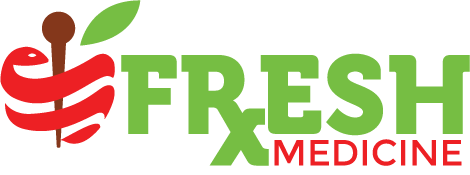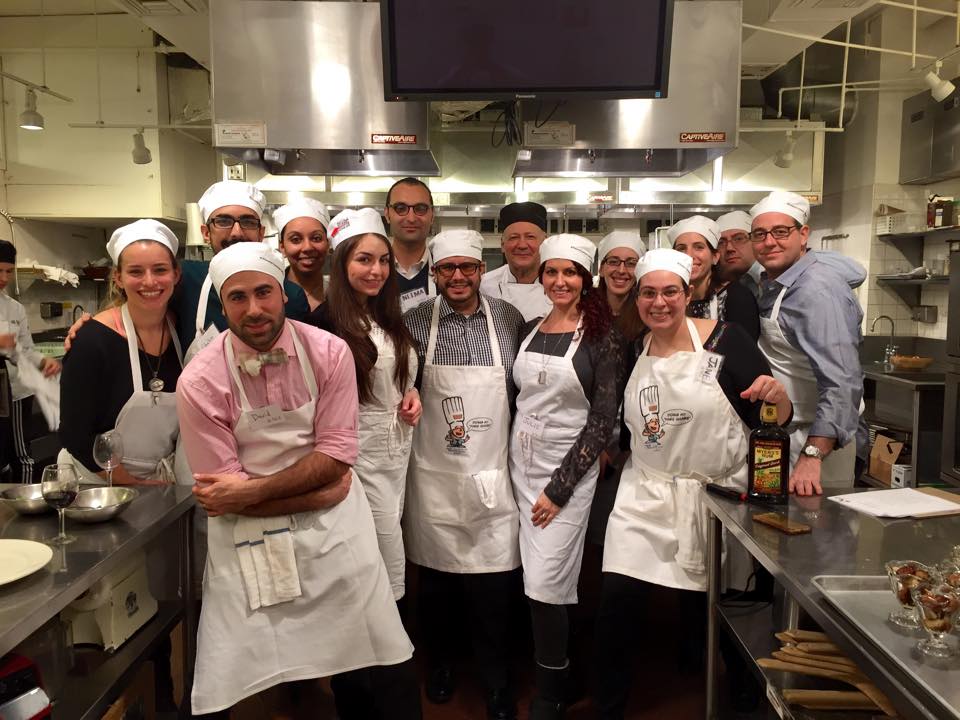You Benefit From Cookin', Good Lookin'!
Dr. Rob’s question is not only what’s cookin’, but who’s cookin’? And the answer is you, good lookin’!
That’s right, if you want to live longer, cook. According to research, eating home-cooked meals may lead to better health outcomes, including decreased rates of diabetes, high cholesterol, hypertension, cancer, and yes—mortality. People who cook also live happier, healthier and longer lives.
Dining out and eating on the run can be unhealthy, because restaurant and fast foods have more fat, cholesterol, sodium, and calories than home-cooked meals. Not to mention, eating out is more expensive. The equivalent of a $22 takeout meal costs only $12 to make at home. Let this photo from our culinary classes at the Natural Gourmet Institute (NGI) be your inspiration to make time for nutritious family dinners that are not only good for your health, but your family’s health!
Dr. Rob and Julie Graham at the National Gourmet Institute.
Despite knowing the benefits of a home-cooked meal, we have now raised the second generation of Americans who don’t know how to cook. The average child in America doesn’t know how to identify even the most basic vegetables and fruit; our kids don’t know where their food comes from or even that it grows on a farm. However, kids will eat what they cook... The solution is in our kitchens!
But what should you cook? And how?
- Great Grains:
2. Bountiful Beans! Beans are a wonderful way to add high-quality, plant-based protein to your diet. They are high in iron, B vitamins and fiber, and are versatile enough that you may never tire of them. Dry beans stay fresh longer when stored in a cool, dark place (rather than on your countertop). Don’t use beans that are more than a year old, as their nutrient content and digestibility are much lower. Also, old beans will not soften, even with thorough cooking. Thanks to the Institute for Integrative Nutrition (IIN) for this helpful information!
3. Oodles o' Dairy? Not necess-airy! Dairy is not crucial for good health. Yes, at times we miss putting cream in our coffee, but when we learned more about the dairy industry and the research on milk, we realized there was no way we could continue to drink milk or eat cheese as frequently as we did as kids. We must be “dairy aware.”
“Try giving up all dairy. That means eliminate milk, cheese, yogurt, and ice cream for two weeks and see if you feel better. You should notice improvements with your sinuses, headaches, irritable bowel syndrome, energy, and weight. Then start eating dairy in moderation again and see how you feel. Always be dairy aware.”
4. Is Protein part of the Pro-Graham? Yes. Protein is essential to good health but for most of us, we’re probably eating too much protein, especially animal protein. The recommendation from the current Dietary Guidelines for Americans states we should get 10% to 35% of daily calories from protein. But, protein doesn’t mean just meat!
5. Most importantly - Veggies! Keep following our blog to see what Dr. Graham says about Eating the Rainbow.
Whichever combinations you create from the lists above, your body will benefit! And best of all, so will your friends' and family's. Those who cook together, eat together. And those who eat together stay together!






